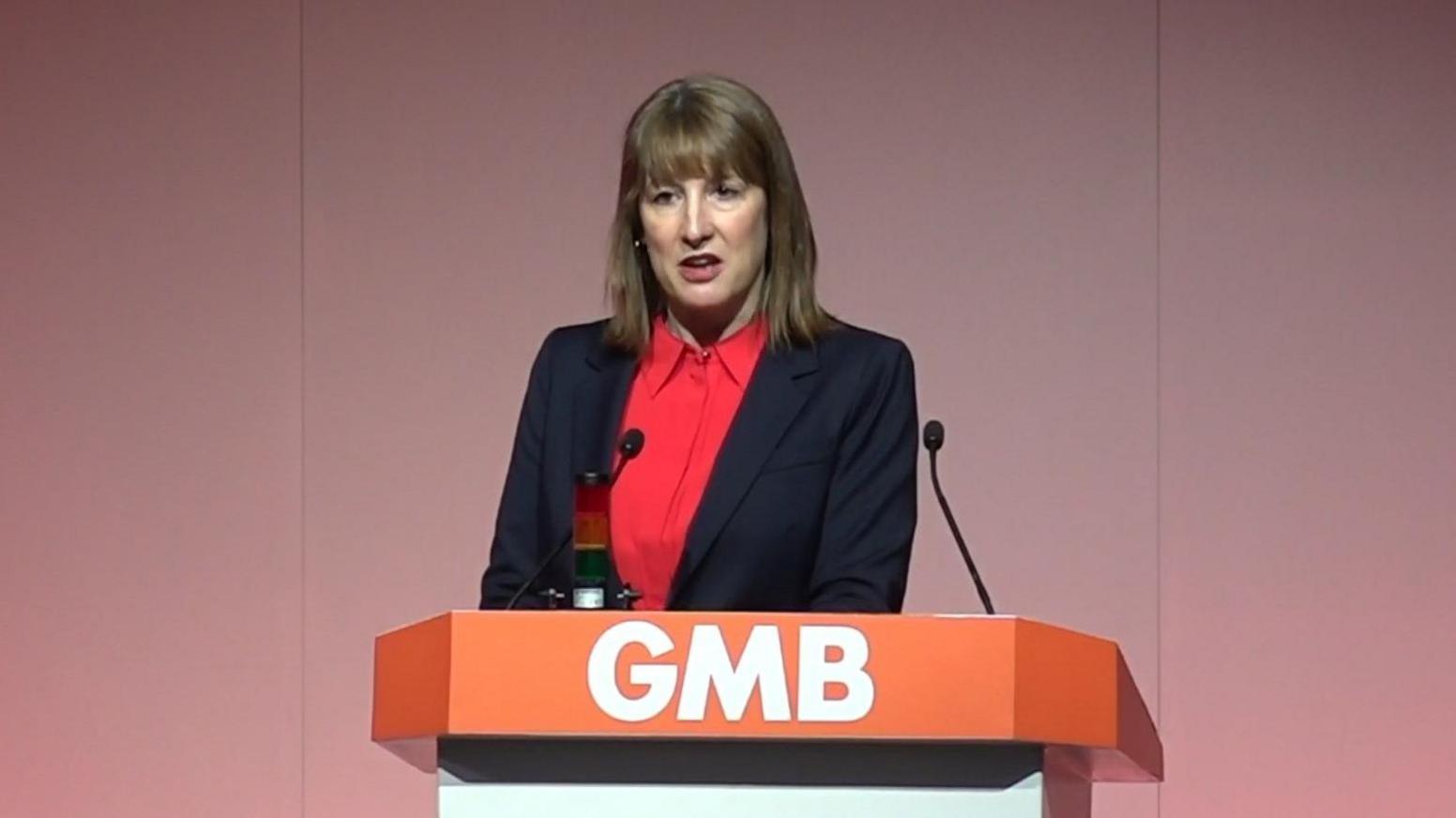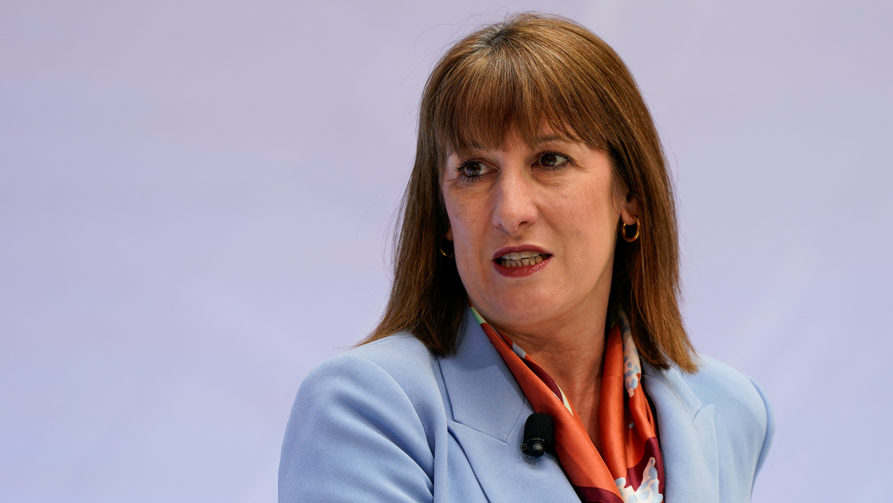What do spending plans mean for the South East?

UK Chancellor Rachel Reeves delivered a speech in Brighton on Tuesday ahead of Wednesday's Spending Review
- Published
Chancellor Rachel Reeves is due to deliver her plans later for how much the government is going to spend over the next few years on public services.
The Spending Review will set the budgets for all departments over the next few years, including the NHS, schools and defence.
We look at some of the issues that might impact south-east England.
Policing
The government has promised more "bobbies on the beat", with 13,000 additional neighbourhood police over the course of this Parliament.
But with other big priorities like defence and the NHS, there are fears the Home Secretary will not be given the money needed to adequately fund day-to-day policing.
Police budgets in the South East are already under pressure. Sussex Police is having to find £5m worth of savings this year.
Forces in the region also need to absorb an increase in employers' National Insurance contributions and an increase to the minimum wage.
Sussex Police and Crime Commissioner Katy Bourne has told me she is anxious about the government's settlement.
She says the South East faces particular challenges, especially with its proximity to London, which is an exporter of drugs and knife crime.
The Treasury has said police forces will get an above inflation increase, but it is thought some Home Office sources believe the funding allocated is not enough.
Housing
Councils in Brighton & Hove, Crawley, Eastbourne, Hastings, Ashford, Gravesham and Canterbury are among those who have struggled under the pressure of unprecedented demand for social housing, with spiralling costs for temporary housing.
Reports indicate deputy prime minster and housing secretary Angela Rayner will be given a boost for investment in affordable housing, but whether it will be on the scale that councils in the South East have been calling for remains to be seen.

Mary Davies said becoming a social housing tenant in Brighton led to huge improvements for her life
Brighton social housing tenant Mary Davies suffered a mental health breakdown and alcohol addiction during the Covid-19 lockdown and became homeless after her marriage broke down.
She said: "You can't rebuild anything in your life without having a safe and secure home.
"It saved my life and has allowed me to sustain my recovery and get to a point where I can be employed again and be a safe mum to my daughter.
"It's worth the government investing in that."
Transport
Kent has long been seen as England's gateway to Europe and roads across the South East, such as the M25 and M23, are the most heavily-used in the country.
This is why the lack of spending for transport has surprised some, as the Treasury has focused on improving transport in the Midlands and the North, with £15bn of spending confirmed for other areas.

Businesses say the Lower Thames Crossing via a tunnel beneath the river will relieve congestion caused by the Dartford Crossing, while campaigners say it will destroy greenbelt land and precious habitats
There are reports that one of the UK's biggest transport infrastructure projects in the UK, the Lower Thames Crossing, will receive only £1bn of the £2bn operators had hoped for to attract private financial investment.
The tunnel is going to require upwards of £9bn to complete, with the government hoping the project will be complete by the mid 2030s.
News that funding has been largely focussed elsewhere has worried some campaigners including councillors in the north of Kent who say more needs to be done to ease the traffic problems they are facing.
Councils
Last month, the leader of Surrey County Council, Tim Oliver, talked about the "unprecedented challenges" facing local government, which he described as being "often the bottom of the government's priority list".
Councils were particularly hard hit after 2010 during the austerity years and officials feel things have not got any better in terms of funding.
Areas of growing demand - which have led to huge pressures on local authority finances - include adult social care and special educational needs and disabilities (SEND).
The number of children needing education, health and care plans (EHCPS) or specialist school places continues to rise across East and West Sussex, Surrey and Kent, which causes stress and heartache for many families.
A major reform is on the way, with the two tier system of councils being scrapped.
Ministers have said the changes will save money which can be reinvested in public services, but there is a lot of uncertainty about the future of local government.
Follow BBC Kent, BBC Sussex and BBC Surrey on Facebook, external, and on X, external. Send your story ideas to southeasttoday@bbc.co.uk, external or WhatsApp us on 08081 002250.
